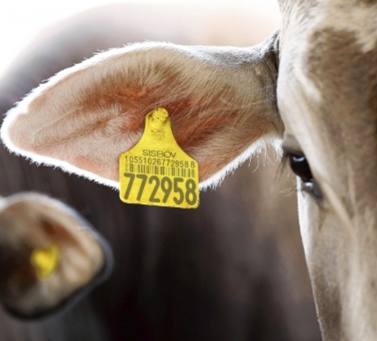
Animal agriculture is not exactly the most sustainable or planet-friendly industry that you can imagine. Far from it, actually: this industry is responsible for at least 14.5 percent of global greenhouse gas emissions (some organizations, such as the Worldwatch Institute, have estimated that the actual figure could be closer to 51 percent!). It has also been linked to oceanic dead zones, rainforest destruction, melting polar ice caps, and mass wild species extinction. Not to mention, it uses a huge amount of global freshwater supplies, and 33 percent of the planet’s arable land area are used to grow livestock feed – in spite of the fact that these resources could easily be used to grow food for the 850 million people who still suffer from food scarcity.
However, whenever the true scale of meat companies’ water or land pollution is revealed, even the most environmentally conscious person is sure to be shocked.
A report by Environment America has just revealed that Tyson Foods, Inc., one of the world’s largest meat producing companies, is responsible for more water pollution than even the oil and gas giant ExxonMobil (not exactly renowned for being all that planet-friendly). Tyson Foods’ pollutants include manure from its factory farm operations, fertilizer runoff from the grain it grows to feed its factory farmed animals and waste from its processing plants.
Based on figures that the agribusiness corporation submitted to the Environmental Protection Agency’s Toxic Release Inventory (TRI), Environment America said, “Tyson Foods Inc. and its subsidiaries dumped 104 million pounds of pollutants into waterways from 2010 to 2014 – the second highest volume of toxic discharges reported to TRI for those years. A substantial portion of Tyson’s discharges are nitrate compounds. Nitrates can contribute to algal blooms and dead zones, and also pose threats to human health, including ‘blue baby syndrome’ for infants.”
According to John Rumpler, senior attorney with Environment America, this data raises some serious questions about our current food production system. “In the public’s mind, if you were to ask who are the big polluters, they would say Exxon, Dow (Chemical), Dupont,” he said. “I think most people who go to the supermarket to buy chicken don’t realize that Tyson is – by volume – heads and shoulders above some of these well-known polluter names. … At a certain point, we have to ask ourselves if the amount of waste created by this (industrial food) system is sustainable.”
This latest news about Tyson Foods’ water pollution – shocking as it is – only points to a deeper problem within the entire animal agriculture system itself: namely, that it is inherently unsustainable, given our planet’s limited resources. While some people point to small, “locally raised,” “organic, or “grass-fed” animal products as a solution, the truth is that in the long run, none of these options are sustainable or capable of producing the current amounts of meat, dairy, or other animal products that humans currently consume.
In order to supply the world with “sustainable meat,” vast tracts of land would need to be cleared, meaning that even more native wildlife species would be displaced or driven to extinction. The world has already lost an estimated 52 percent of its wildlife in the past forty years – and a primary driver of that loss has been deforestation caused by the industrial livestock system.
As the leading organization at the forefront of the conscious consumerism movement, it is One Green Planet’s view that our food choices have the power to heal our broken food system, give species a fighting chance for survival, and pave the way for a truly sustainable future.
By choosing to eat more plant-based foods, you can drastically cut your carbon footprint, save precious water supplies and help ensure that vital crop resources are fed to people, rather than livestock.
Why pay to support a company that is harming animals, people, and the planet when a truly better alternative exists. We can all work to stop the destruction caused by Tyson, and other companies by simply leaving meat and dairy off the menu.
Lead Image Source: Environment America